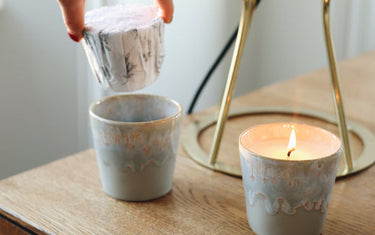4 min read / 26 March 2023 / Laura Garvin Gomez
What is Linseed Oil Used For?
Discover the many applications and benefits of linseed oil, from woodworking to painting and beyond, in our informative blog.
Share this post

Linseed oil is a natural oil that many people use as part of their skincare and hair routine, offering a more organic alternative to traditional cosmetic products.
But there is sometimes confusion about what linseed is and what it can be used for, especially for people who have not tried it before. To give you more insight we look at how linseed oil can be used, some of its benefits and more.
What is linseed oil?Linseed oil is extracted from the Linum usitatissimum plant. It comes from the exact same source as flaxseed oil and can be referred to as the same thing in most cases. However, there are certain types of linseed oil products that contain additional additives so it can be used to waterproof wood or increase the longevity of paints. In its pure form, linseed oil is perfectly safe to consume – just be sure not to consume pure, cold-pressed linseed products that have any additional ingredients or that have been made for industrial purposes. |
What are the benefits of linseed oil?
Some of the health benefits of linseed oil include:
- High in Omega-3 Fatty Acids: Linseed oil is high in omega-3 fatty acids, which is derived from alpha-linolenic acid. Experts recommend that you take one tablespoon of linseed oil every day if you are not getting enough omega-3 in your diet, as it provides the right dosage level needed to maintain the required level.
- It could help to slow cancer cell growth: Some studies have found that linseed oil may be able to reduce the growth of cancer growth cells. However, at present, research is limited to animal and test-tube studies. One mice study found that after being given a 0.3ml dosage of linseed oil for 40 days, the spread of cancer was reduced.
- Linseed oil may improve heart health: A study carried out on a small group of people found that when supplementing 15 ml of linseed oil for 12 weeks, blood pressure levels dropped quite significantly compared to supplementing with safflower oil. There have also been a number of studies that have shown how omega-3 fatty acids are good for heart health.
- Your skin health could be improved: Whilst no studies have been carried out to examine the benefits of applying linseed oil to human skin, there have been positive results elsewhere. For example, a small number of women were supplemented with linseed oil for 12 weeks. Results showed that skin sensitivity to irritation was reduced, and skin hydration and smoothness also improved.

What is the best type of linseed oil?
When buying linseed oil, always check that the label says it is cold pressed. Pure or organic types of linseed are generally considered to be the best kind, and if the label also says ‘non-GMO’ it means that the oil has not been treated with chemicals of any kind.
How can you consume linseed oil?
There are lots of different ways you can use linseed oil. For example, you could swap it for other types of oil in salad dressings, hummus, sauces and dips.
Another way to add it to your diet could be to use 15ml (one tablespoon) in a shake or smoothie, which is an easy way of boosting your omega-3 levels.
Linseed oil should only be consumed in cold form because if used as part of a cooking recipe, it could form harmful compounds due to it having low smoke point.
The oil is also used as an egg replacement, and although it does not serve as a direct substitute, it is ideal for vegan recipes as it can help to bind other ingredients together (when mixed with some water).

How to use linseed oil for your skin
Linseed oil can be used directly on your skin without any additional carrier oils for:
- Moisturising: Thanks to its high levels of omega-3 fatty acids, linseed oil can be used as a moisturiser to hydrate and repair the skin.
- Remove makeup: For a natural way to cleanse your skin, linseed oil offers an organic way of removing makeup without clogging pores, all without any additional chemicals.
- Acne prevention: Linseed oil may be able to control excess sebum production, the substance that can cause acne, helping to improve the overall condition of your skin.
- Hair care: Gently massaging in small amounts of linseed oil into your hair can help to improve its condition, especially if it is prone to breaking and damage, due to its vitamin E content.
Are there any risks to using linseed oil?
Cold-pressed linseed oil is generally considered safe for topical use on your skin, although there are some risks you should be aware of.
In some cases, people with sensitive skin may experience skin irritation and allergic reactions. Therefore, before using linseed oil on your skin it is advisable to carry out a patch test to see how your skin reacts to the oil.
To carry out a patch test, simply apply a small amount to the inside of your upper forearm and over with a plaster for 24 hours. If there is no reaction, it should be fine to use the oil on your skin. However, if you experience any redness, irritation or inflammation then wash the oil off your skin and do not use it any further.

As both flaxseed and linseed oil are the same thing you have the choice of using either one for your skin, hair or diet. Its omega-3 properties offer a variety of health benefits that could improve the condition of your hair and skin if taken over a prolonged period of time. Be sure to use cold-pressed linseed oil and avoid products that are intended for use with paints.









